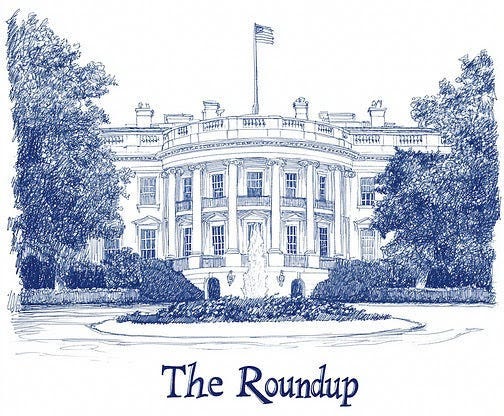Please click here to opt in to receive the Executive Functions Roundup via email and to subscribe to Executive Functions.
A panel of the Fifth Circuit Court of Appeals on Tuesday upheld preliminary injunctions halting National Labor Relations Board (NLRB) proceedings. The panel concluded that the double-for-cause removal protections insulating the NLRB’s administrative law judges (ALJs) are unconstitutional and refused to extend Humphrey’s Executor to the NLRB Board Members’ removal protections. (Opinion.) For a summary of some of the court’s main points, see Jonathan Adler’s piece. (Volokh Conspiracy.)
Judge Sharon Johnson Coleman (N.D. Ill.) on Tuesday denied the federal government’s motion to preliminarily enjoin the Illinois Right to Privacy in the Workplace Act and granted Illinois’s motion to dismiss the federal government’s action for failure to state a claim. Judge Coleman rejected the federal government’s argument that “the comprehensive framework for ‘combating the employment of illegal aliens’ established by [the Immigration Reform and Control Act of 1986]... both expressly preempts and is frustrated by the protections provided by the Privacy Act.” (Opinion and Order.)
The U.S. attorney’s office in Washington, D.C. is investigating whether D.C. police officials falsified crime data. (@realDonaldTrump.) (WaPo.)
President Trump revoked the security clearances of 37 current and former national security officials. Director of National Intelligence Tulsi Gabbard accused the officials of having “abused the public trust by politicizing and manipulating intelligence, leaking classified intelligence without authorization, and/or committing intentional egregious violations of tradecraft standards.” (@DNIGAbbard.) (NYT.)
U.S. Citizenship and Immigration Services announced on Tuesday that, when deciding whether to grant visa or green card applications, it will be reviewing applicants’ social media for “anti-American activity.” (Announcement.) (WSJ.)
Lawyers for Kilmar Abrego Garcia, who was wrongfully expelled to El Salvador in March, filed a motion to dismiss Abrego Garcia’s indictment for “selective or vindictive prosecution.” (Memorandum.) (NYT.)
Joseph Nunn and Spencer Reynolds analyze the legality of the federal deployment of National Guard forces in D.C., the federal commandeering of the D.C. police department, and the deployment of Homeland Security patrols in the city. (Just Security.)
Adam Unikowsky discusses why McMahon v. New York and many other “shadow docket” cases were decided by a 6-3 vote. (Substack.)
Pending Interim Order Applications Involving the U.S. Government in the Supreme Court
Noem v. Perdomo: The government filed an application on August 7 to stay a federal district court order preventing federal immigration officials in Los Angeles and six other California counties from conducting detentive stops based on the following factors, according to the application: “[1] apparent race or ethnicity; [2] speaking in Spanish or accented English; [3] presence at a location where illegal aliens are known to gather; and [4] working or appearing to work in a particular type of job.” Pedro Vasquez Perdomo filed a response in opposition to the government’s application for a stay on August 12. The government filed a reply in support of its application for a stay on August 13.
National Institutes of Health, et al. v. American Public Health Association, et al.: The government filed an application on July 24 to stay a federal district court order that prevented the National Institutes of Health from canceling grants that, according to the administration, are related to DEI and “gender ideology.” The American Public Health Association filed a response in opposition to the government's application for a stay on August 1. The government filed a reply in support of the application for a stay on August 4.




